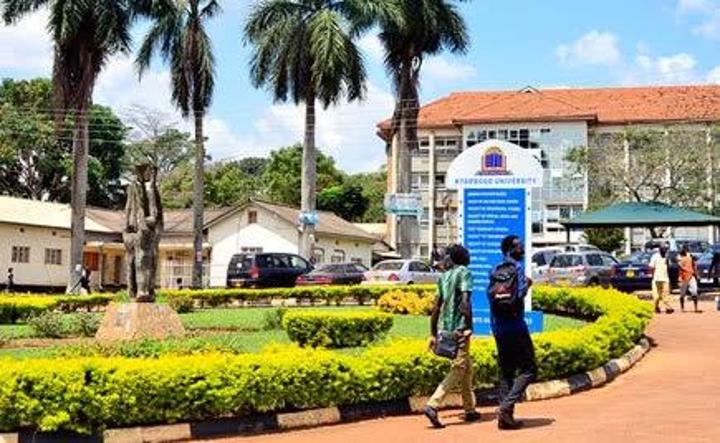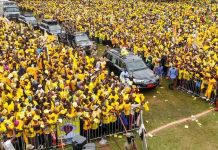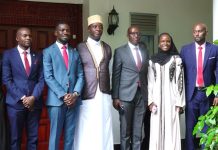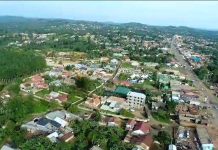Africa-Press – Uganda. Kyambogo University has suspended its Guild President, Benjamin Akiso, along with 16 other students for their role in a last week’s protest against a controversial Shs50,000 surcharge on late tuition registration.
The suspension, which took effect today Tuesday, April 29, will last one month pending a formal disciplinary hearing.
According to a notice issued by university management, the students have been penalised for participating in a demonstration on April 23 that disrupted university operations.
The protest, which began peacefully, turned chaotic when police officers deployed teargas and fired live bullets into the air to disperse the crowd, causing panic and a temporary halt to campus activities.
The protest was led by Akiso, a Diploma student in Sign Language Interpreting, who challenged the administration’s decision to impose the surcharge, calling it a heavy burden on already struggling students.
“We are ready to engage the university in discussions,” he said at the time.
“Students deserve to be heard, not silenced with teargas.”
Witnesses reported that the police, particularly the Field Force Unit, responded with excessive force, including firing live rounds into the air, triggering a stampede as students and staff scrambled for safety.
Videos that circulated widely on social media showed unarmed students being chased, beaten, or choked by uniformed officers, sparking public outrage and drawing criticism of the government’s response to student dissent.
The students had gathered to protest not only the surcharge but also a university policy barring students with outstanding fees from sitting end-of-semester examinations.
Many of the demonstrators argued that the policy was unrealistic given Uganda’s harsh economic conditions.
“How can you lock someone out of exams after they’ve attended classes all semester just because they couldn’t pay in time?” one protester asked.
The university named the suspended students across a range of faculties including Social Sciences, Engineering, Agriculture, Education, and Special Needs.
Management has warned that none of the suspended students is allowed on the university premises during the suspension period.
They are expected to appear before the Students’ Affairs and Welfare Committee, which will determine the final disciplinary outcome.
Although calm returned to campus later in the day of the protest, the suspension has stirred further tension among students. Some view the disciplinary move as retaliation against legitimate dissent.
“We want to study, we want to graduate, but we also want to be treated with dignity,” said one final-year student.
“This is our future we’re fighting for.”
The move also underscores a wider trend in Uganda’s higher education sector, where student suspensions over protest actions have become increasingly common.
Since 2017, when Professor Barnabas Nawangwe assumed leadership at Makerere University and introduced a hard-line approach against student and staff activism, other public universities have followed suit.
Scores of student across institutions have since faced suspensions, expulsions, or police surveillance for mobilising against administrative policies or fee structures.
In many of these cases, disciplinary action has preceded dialogue, raising concerns about shrinking space for student expression and the criminalisation of campus dissent.
For More News And Analysis About Uganda Follow Africa-Press






